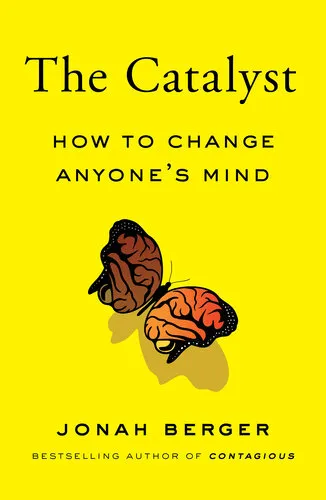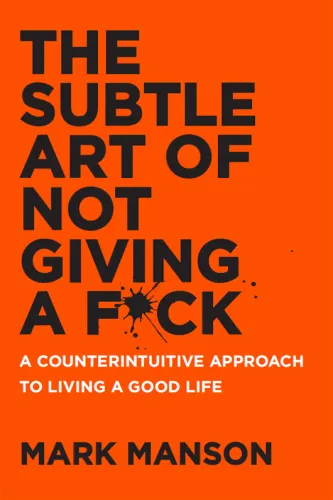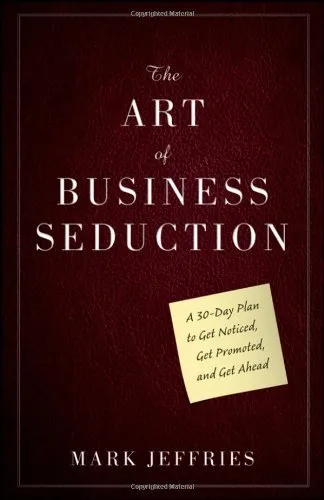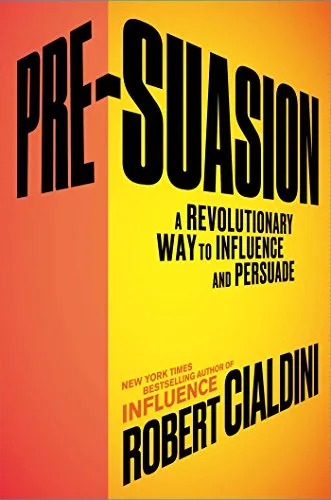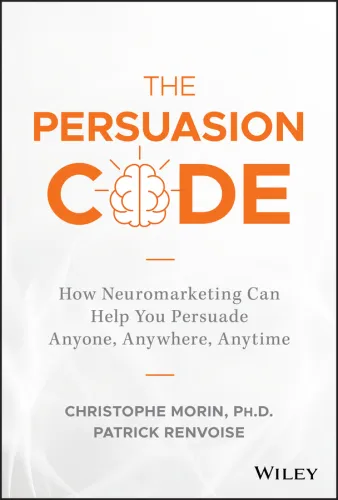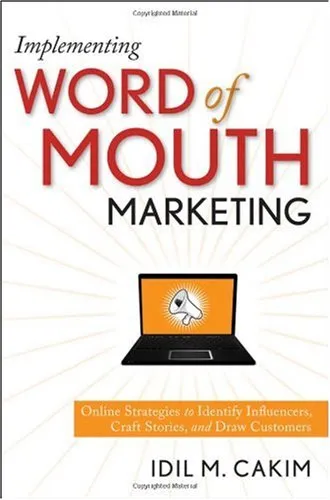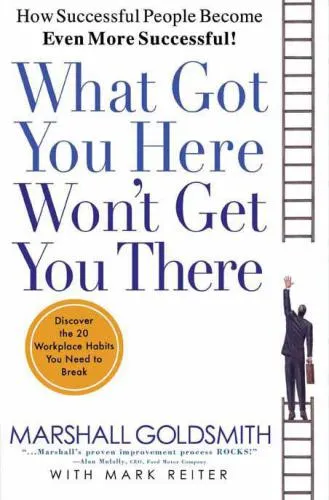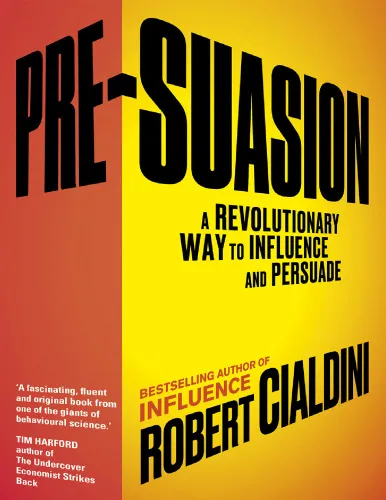The Catalyst: How to Change Anyone's Mind
4.6
Reviews from our users

You Can Ask your questions from this book's AI after Login
Each download or ask from book AI costs 2 points. To earn more free points, please visit the Points Guide Page and complete some valuable actions.Related Refrences:
Introduction to "The Catalyst: How to Change Anyone's Mind"
Change is one of the most fundamental and challenging endeavors we face in both our personal and professional lives. Whether convincing a colleague to support a new project, encouraging a family member to rethink a decision, or facilitating change on a grander societal scale, the process of persuasion can often feel like an uphill battle. In "The Catalyst: How to Change Anyone's Mind", acclaimed author and marketing professor Jonah Berger delves into the science and art of creating change. This book provides a revolutionary framework for understanding why people resist change and how we can overcome such resistance effectively.
Unlike conventional approaches that focus on pushing harder or exerting more effort to get results, Berger posits that change comes more easily when we lessen the barriers that prevent people from taking action. By identifying and removing these barriers, we can become catalysts—agents who spark and facilitate change. Anchored in psychological research, captivating stories, and real-world examples, the book is a powerful guide that sheds new light on how change really happens.
Detailed Summary of the Book
The central concept in "The Catalyst" is that people don’t resist change because they are inherently stubborn or difficult. Instead, they resist because of particular barriers standing in their way. Berger introduces a systematic framework built around removing these obstacles, rather than pushing harder to force change. He refers to these barriers as the REACTANCE, ENDOWMENT, DISTANCE, UNCERTAINTY, and CORROBORATING EVIDENCE (or REDUCE) framework.
Each chapter of the book tackles one of these barriers:
- Reactance: Humans resist being told what to do. To foster change, it's essential to allow people to feel a sense of autonomy and choice.
- Endowment: People naturally cling to what they already have. Shifting mindsets requires helping individuals let go of the status quo.
- Distance: Pushing someone too far from their current belief system creates resistance. Instead, changes must be incremental and approachable.
- Uncertainty: People often prefer familiar risks to the unknown. Empowering them to reduce uncertainty through small steps or trials can make them more open to change.
- Corroborating Evidence: To shift beliefs, people need not just one reason but multiple pieces of evidence that establish a solid case for change.
Throughout the book, Berger uses case studies and gripping narratives to give life to these concepts—everything from how activists foster political movements to how marketers influence consumer decisions. The book is a practical toolkit for anyone looking to spark meaningful change, devoid of manipulation or pressure tactics.
Key Takeaways
Here are some of the book's most impactful insights:
- Change happens not by adding more pressure but by identifying and removing barriers in the way.
- People are more likely to embrace change when they feel like the decision is their own. Providing choice and autonomy is key.
- Building trust and providing opportunities for incremental progress can reduce the fear of uncertainty.
- Sometimes, less convincing is more. Offering room for doubt can be more persuasive than overwhelming someone with reasoning.
- Sustainable change happens when people are encouraged to take action on their terms, not yours.
Famous Quotes from the Book
"The best catalysts don’t add pressure. They remove barriers."
"People need to believe the decision is their own. Otherwise, they'll resist."
"To catalyze change, instead of persuading people what to do, we must understand why they’re not doing it."
Why This Book Matters
"The Catalyst" is more than just a guide to persuasion; it’s a paradigm shift in how we think about change. The principles outlined in the book are vital not only for individuals looking to influence others but also for organizations and institutions tackling complex issues. In a world where change feels more urgent than ever—whether solving societal challenges, adapting to technological advances, or navigating personal relationships—this book offers actionable strategies that produce meaningful results.
At its core, Jonah Berger's work empowers readers to see change through the eyes of the people they are trying to influence. By embracing the principles of removing resistance and unlocking potential, we can move closer to achieving our goals without forcing, coercing, or alienating those we wish to reach.
Free Direct Download
You Can Download this book after Login
Accessing books through legal platforms and public libraries not only supports the rights of authors and publishers but also contributes to the sustainability of reading culture. Before downloading, please take a moment to consider these options.
Find this book on other platforms:
WorldCat helps you find books in libraries worldwide.
See ratings, reviews, and discussions on Goodreads.
Find and buy rare or used books on AbeBooks.
1320
بازدید4.6
امتیاز0
نظر98%
رضایتReviews:
4.6
Based on 0 users review
Questions & Answers
Ask questions about this book or help others by answering
No questions yet. Be the first to ask!
